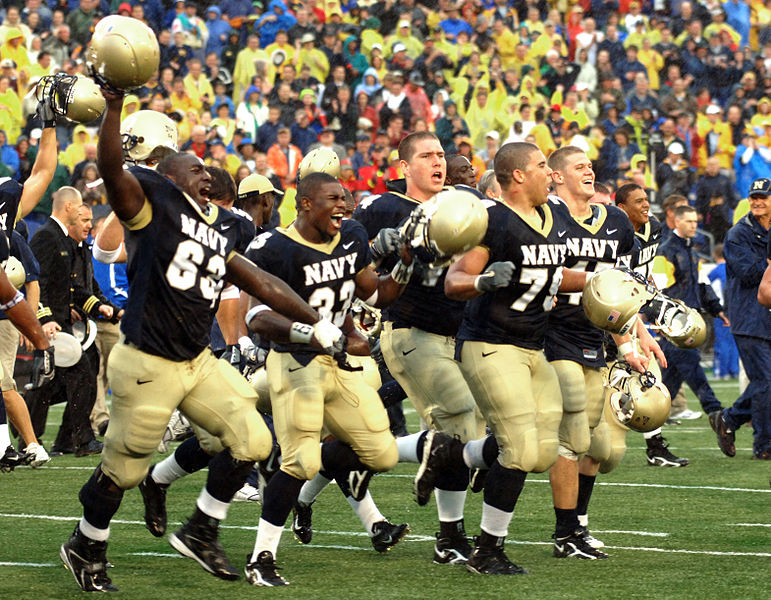“Jock Culture” or Sex-Segregated Socialization?
High-profile cases of rape and sexual assault perpetrated by athletes in the US have become far too common. In a recent column for The Nation, Dave Zirin illustrated the ever more obvious connection between “jock culture” and the perpetration of sexual violence. Jock culture and rape culture, Zirin argues, are intrinsically linked. Young women are seen as “the spoils of being a jock” according to Zirin. In many ways Zirin could not be more right. Clearly young male athletes are learning terrible lessons regarding what their status means about their relationships to women but is “jock culture” the right way to frame this issue?
[ This article was originally published at Masculinities 101 ]
While the last several years have seen a profound number of sexual violence cases involving athletes, they have also seen a great deal of violence in other arenas. Fraternities in America are one of the easiest examples to point to. Earlier this week an Emory University student reported that she had been raped by two men in a campus fraternity house. Last month news broke that a fraternity member at Georgia Tech University referred to his female classmates as “rapebait” in an email to his brothers detailing how to successfully rape a woman. Indeed, a study in 2007 found that men in fraternities are three times more likely than their male peers to commit rape. That 2007 study was certainly not the first with those findings. So, fraternities, in addition to athletics, seem to have a sexual violence problem.
But we also can’t just single out fraternities and athletics. Gaming/geek culture has also been receiving increased attention for its promotion of sexism. Perhaps the most obvious example of this is the many reports of rampant sexual harassment and groping of women attendees of Comic Con and other “geek” conventions. The people that our society labels as “geeks” are assumed to be the farthest thing possible from “jock culture” and yet the misogyny is often shared. Clearly there is more to this the sexual violence problem than “jock culture”.
So, what do these three examples have in common? They are all spaces in which men and boys are able to (mostly) separate themselves from women. For many men in these environments their primary social experiences are devoid of women. Research suggests that it may be this sex segregated socialization, rather than something intrinsic to athletics, fraternities, or gaming that so often results in sexist attitudes and behaviors toward women. In fact, sex-segregated schooling has been shown to produce some of the same problematic attitudes toward women and girls.
When men and boys extensively socialize in the absence of women and girls they are more able to dehumanize and objectify them. In these all-male spaces women and girls can become “others” that are more easily abused. So, perhaps rather than targeting a jock, frat, or geek culture as particularly harmful to women and girls we should begin to think more broadly about the impact of sex segregated socialization on the development of men’s and boys’ beliefs about sex and gender.
—
Further Reading
Anderson, Eric. 2008. ““I Used to Think Women Were Weak”: Orthodox Masculinity, Gender Segregation, and Sport.” Pp. 257-80 in Sociological Forum, Vol. 23: Wiley Online Library.
Bleecker, E. Timothy and Sarah K. Murnen. 2005. “Fraternity Membership, the Display of Degrading Sexual Images of Women, and Rape Myth Acceptance.” Sex roles 53(7-8):487-93.
Boeringer, Scot B. 1999. “Associations of Rape-Supportive Attitudes with Fraternal and Athletic Participation.” Violence against women 5(1):81-90.
Flood, Michael. 2008. “Men, Sex, and Homosociality How Bonds between Men Shape Their Sexual Relations with Women.” Men and Masculinities 10(3):339-59.
Foubert, John D., Johnathan T. Newberry and Jerry L. Tatum. 2007. “Behavior Differences Seven Months Later: Effects of a Rape Prevention Program.” NASPA Journal 44(4).
Leaper, Campbell. 1994. “Exploring the Consequences of Gender Segregation on Social Relationships.” New Directions for Child and Adolescent Development 1994(65):67-86.
Plummer, David. 1999. One of the Boys: Masculinity, Homophobia, and Modern Manhood: Psychology Press.
Sanday, Peggy. 2007. Fraternity Gang Rape: Sex, Brotherhood, and Privilege on Campus: NYU Press.
—
[ This article was originally published at Masculinities 101 ]




1099-1328/asset/dsa_logo.jpg?v=1&s=e4815e0ca3064f294ac2e8e6d95918f84e0888dd)
